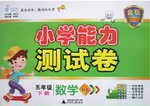题目内容
Not seeing Justin, his sister , Kelly, ______ nine, heard him ______his favorite CD in his room.
| A.aged; put on | B.age; put down | C.aging; put on | D.to age; put out |
A
解析试题分析:考查过去分词做定语和词组辨析,aged nine九岁的…,修饰Kelly,第二空考查词组:put on播放,穿上,put down放下,put out扑灭,句意:看不见贾斯丁,他九岁的姐姐Kelly听到他正播放他最喜欢的CD。选A。
考点:考查过去分词做定语和词组辨析
点评:分词做定语要考虑分词和修饰的宾语的关系,如果是主动关系就要用现在分词,如果是被动关系就用过去分词。考查时态要注意时间状语。同样动词加不同介词或副词的不同含义要区分。

 期末100分闯关海淀考王系列答案
期末100分闯关海淀考王系列答案 小学能力测试卷系列答案
小学能力测试卷系列答案Many of us learn valuable lessons from our patients. I was 36 to learn one early in my career as a nurse. I have 37 her name, but she has influenced the way I treat many other patients.
I was working the 3-11 pm shift at a small hospital at that time. The patient was a 42-year-old woman who had 38 a heart attack. She was expected to stay in 39 for about two weeks before being sent home. She was 40 that she could not see her three young children. We did not 41 children into a hospital in those days.
Every evening, we would 42 our children. I had one daughter and I loved her so much that I could not 43 not seeing her every day. The patient was getting 44 and we both knew it wouldn’t be long before she would be home 45 her little ones again.
About a week later, she 46 me to sit with her for a while. I held her hand and she told me she was 47 and thought she might not see her kids again. I tried to let her know that her 48 so far had been great. It was 10:30 pm, almost time for the 49 of my work. I told her I had to hand in my 50 and that I would come back to her room.
Then I 51 with my friends. It wasn’t until I had got home that I realized I had forgotten to keep my promise. “That’s OK,” I thought, “I will spend 52 time with her tomorrow.”
The next day I was told that she had 53 at midnight. She wanted company and I let her down. She left the world quietly. If I had stayed in her room, would she be home surrounded by her 54 right now? I would never know. What I do know is this: I have 55 every patient’s request since that night.
| 【小题1】 |
|
| 【小题2】 |
|
| 【小题3】 |
|
| 【小题4】 |
|
| 【小题5】 |
|
| 【小题6】 |
|
| 【小题7】 |
|
| 【小题8】 |
|
| 【小题9】 |
|
| 【小题10】 |
|
| 【小题11】 |
|
| 【小题12】 |
|
| 【小题13】 |
|
| 【小题14】 |
|
| 【小题15】 |
|
| 【小题16】 |
|
| 【小题17】 |
|
| 【小题18】 |
|
| 【小题19】 |
|
| 【小题20】 |
|
Compulsive(强迫的)shoppers may have a new psychological excuse to blame for their wild shopping. Psychologists at the University of Canterbury in New Zealand are studying the “shop-till-you-drop” habit as a behavioral disorder similar to compulsive eating. Compulsive shoppers frequently buy more than they can afford or more than they need, and it causes them distress(苦恼).
“It becomes a problem when you are out of control,” psychology lecturer Neville Blampied said. “When you are feeling bad and blue, what do you do? Some people eat chocolate cake and ice cream. Some people take the credit card and go out to the shop.” Bank managers understand the problem because they have to deal with people who have to be persuaded to stop using their cards drawing money.
Compulsive shopping was first discovered in 1915, although it was then known as monomania. Few studies have been done on the problem.
An advertisement in a Christchurch paper, calling for people to take part in an experimental treatment program designed by Mr. Wilson, attracted 10 replies. But the problem, said Mr. Wilson, is “clearly not rare”. He thinks that compulsive shopping should be treated with drugs. “As psychologists we are interested in non-drug treatments for behavioral difficulties,” Mr. Wilson said.
Compulsive eaters or shoppers get a kick from their habit. “Both activities provide an immediate kind of kick and you feel a bit better,” he said. “You have long-term problems, but human beings are extremely good at not seeing long-term problems and are very sensitive to short-term benefits,” he said.
The aim of the treatment was to help people find better ways of managing their emotions. The program, consisting of 10 one-hour weekly lessons and two follow-up treatments, is loosely based on teaching stress management.
“You often have to start to get people to correctly recognize their emotions. Not being able to know what you really feel weakens your ability to solve the problems connected with what’s making you feel that way,” Mr. Wilson said.
【小题1】The compulsive shoppers will go shopping when ______.
| A.they have lots of money | B.they are taking drugs |
| C.they are feeling sad | D.they win a prize |
| A.compulsive eating | B.a new psychological excuse |
| C.the study done by Blampied | D.the behavior of wild shopping |
| A.Teaching them to manage their money better. |
| B.Teaching them to understand their emotions. |
| C.Persuading them not to draw money from the bank. |
| D.Treating them with right drugs. |
| A.feel distressed after their wild shopping |
| B.feel better after treatment from psychologists |
| C.are better able to deal with stress problems |
| D.have a feeling of excitement after shopping |